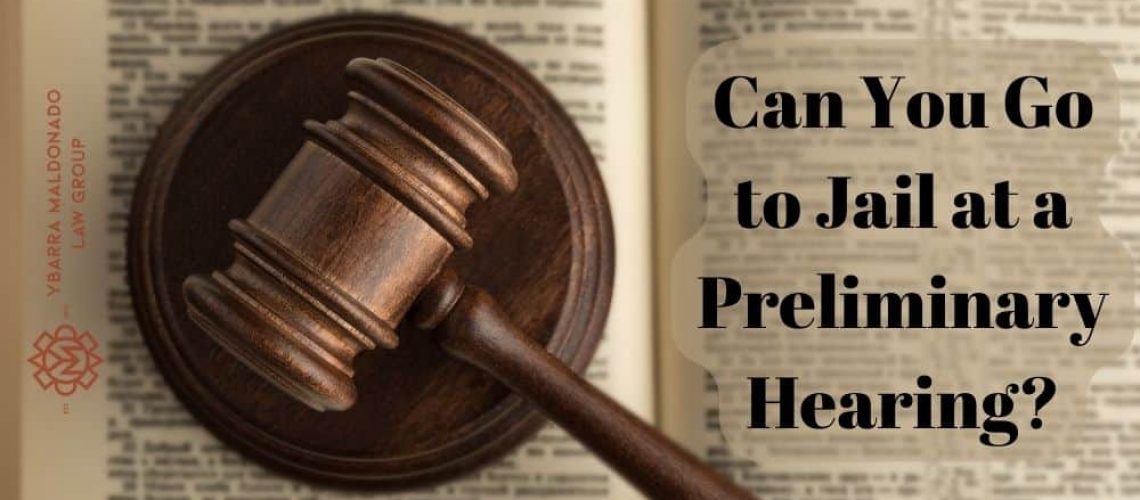Being arrested can turn your life upside down. Suddenly you’re being asked all these questions, but no one is answering your questions. During an arrest, anything you say can be used as evidence later. Police officers may seem to “go easy” on you and act friendly, but their goal is to get a confession. The arrest process can be confusing, and the thought of upcoming court dates can be extremely stressful. If the main question on your mind is “can you go to jail at a preliminary hearing,” then you’ve come to the right place. At Ybarra Maldonado Law Group, we can take some of the overwhelming stress off your shoulders. We’ll explain what a preliminary hearing is, when it happens, and other important aspects of this part of the criminal justice process.
If you’re facing criminal charges in Phoenix, contact the skilled Phoenix criminal defense attorneys at Ybarra Maldonado Law Group at (602) 910-4040.
What Is the Purpose of a Preliminary Hearing in Arizona?
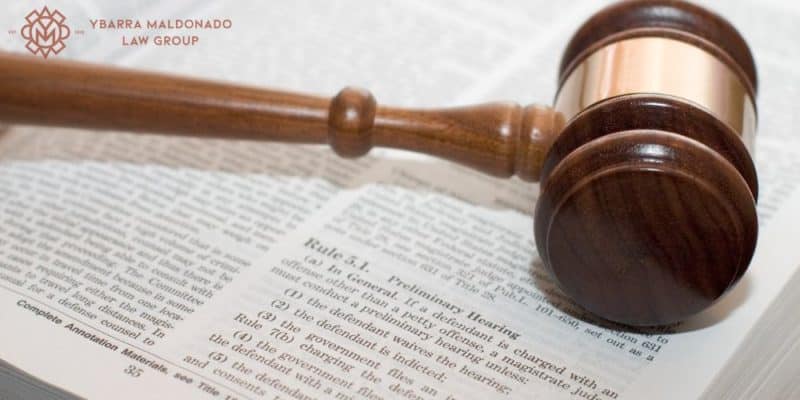
The purpose of a preliminary hearing is to see if there’s enough evidence to pursue a criminal trial. A preliminary hearing can be part of both the criminal justice process for both felony charges and misdemeanors charges. This includes charges for drug possession, federal crimes, homicide, sex crimes, theft crimes, and other violent crimes. Both the prosecution team and the defense team introduce evidence to a magistrate judge who then decides if there is enough evidence to prove that a crime happened and that you are the one who committed the crime. This is not the point in the case where prosecutors have to prove your guilt beyond a reasonable doubt. This is often referred to as “probable cause.”
Criminal proceedings don’t happen as quickly as they do on television. The criminal justice process involves many steps and many decisions along the way. The process can seem overwhelming and confusing, but the defense lawyers at Ybarra Maldonado Law Group have your back. We can answer any questions you may have about this extensive process and help you determine the best course of action in your case.
When Does a Preliminary Hearing Happen?
A preliminary hearing typically happens after your first court appearance, which is often called an initial appearance. At the initial appearance, the criminal charges are outlined and a judge determines bond/bail amounts. The purpose of a bond is to guarantee that the defendant will be at all future court proceedings. The first hearing after an initial appearance is the preliminary hearing. An initial appearance has to happen within 24 hours of the arrest. The preliminary hearing usually happens within 10-20 days after this, depending on if the defendant is in custody or not.
Does Every Criminal Case Get a Preliminary Hearing in Arizona?
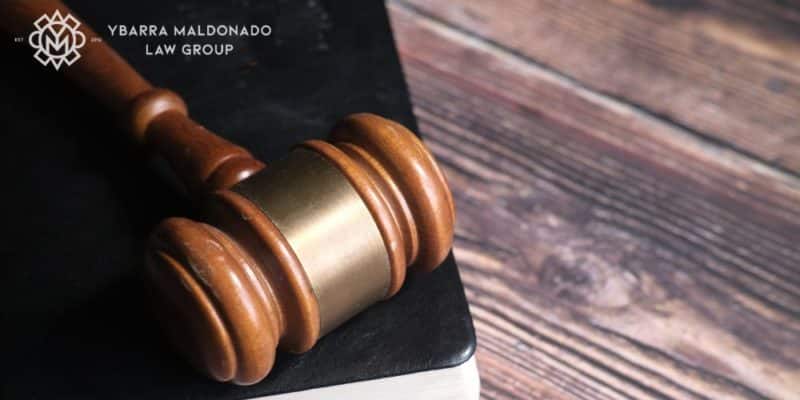
Not every criminal case gets a preliminary hearing in Arizona. In some cases, the prosecution team may seek to get a grand jury indictment instead. If the grand jury finds probable cause, then seeking a preliminary hearing would be a waste of time and resources. The court may find probable cause during the initial appearance, negating the need for a preliminary hearing. The defendant can also waive the preliminary hearing depending on factors in their case.
Can a Preliminary Hearing Be Waived?
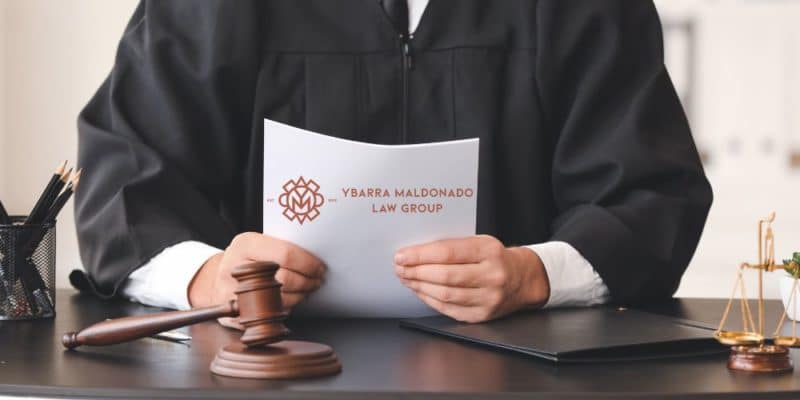
In some cases, the best course of action may be to waive the preliminary hearing. Your defense attorney can recommend the best course of action in your case. Below, we’ll go over reasons to waive a preliminary hearing as well as reasons not to waive the hearing.
Reasons to Waive Hearing
One of the reasons to get an experienced private defense attorney is to fully discuss all of your legal options and have time to process the decision. Prosecutors often offer benefits to people who waive their right to a preliminary hearing. These benefits can include lower bail amounts or even release on own recognizance. This means the defendant would not have to choose between posting bail or remaining in jail pending trial. Your criminal defense attorney may also suggest waiving the right to a preliminary hearing if you’ve already made the decision to plead guilty to the charges. Waiving the right to the preliminary hearing would speed up the criminal justice process.
Reasons Not to Waive Hearing
Sometimes the best course of action is to go through with the preliminary hearing. Doing this means that the defense team can see what evidence the prosecution has. The preliminary hearing also gives the defense team a chance to cross-examine witnesses and determine their reliability. If your defense team decides to fight the charges against you, you’ll most likely go forward with a preliminary hearing.
Another reason not to waive the hearing is the ability to weaken witness testimony. After a preliminary hearing, your defense team will be given a copy of the preliminary hearing transcript. This transcript includes everything the witnesses said under oath. During a criminal trial, your attorneys can reference these statements and use them as evidence.
Plea Bargains and Preliminary Hearings
The justice system often has limited resources and time. To preserve the resources available, the prosecution team may begin plea negotiations in exchange for a guilty plea or a no contest plea. This may sound like a loss to you, but common pleas can include reduced prison time or only probation. Pleading guilty may be the best course of action if the prosecution has enough evidence to convict you to a longer prison sentence.
Outcomes of a Preliminary Hearing
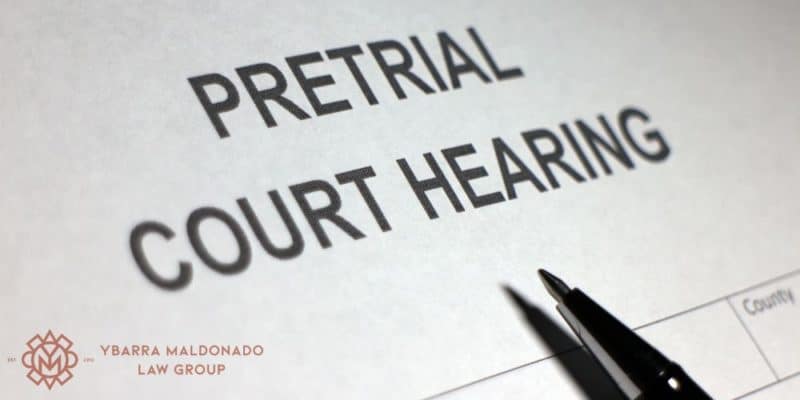
A preliminary hearing can have a few different outcomes. Below, we explain the four different outcomes that preliminary hearings can have.
Scratched
A scratched preliminary hearing means the prosecution team was not prepared to file charges by the court date. Prosecutors have seven years to file felony charges and most misdemeanors have a time limit of one year (DUIs have a two-year limit).
Vacated
Preliminary hearings can be vacated when the prosecution decides to pursue a grand jury indictment instead. A grand jury indictment is much more secretive than a preliminary hearing, and the defense team often won’t know the prosecution’s plan until the grand jury’s decision has been finalized.
Probable Cause
If the magistrate judge finds the evidence sufficient, the defendant will be tried by a jury of their peers. Probable cause does not equal a criminal conviction. It simply means that the magistrate judge has determined that there is sufficient evidence to find probable cause in your case. The prosecution still has to prove beyond a reasonable doubt that the defendant is guilty.
No Probable Cause Found
If there is no probable cause found in your case, the charges will be dismissed. The charges can be re-filed in the future. The prosecution team can also pursue a grand jury indictment to find probable cause in your case.
Can You Appeal a Preliminary Hearing Decision?
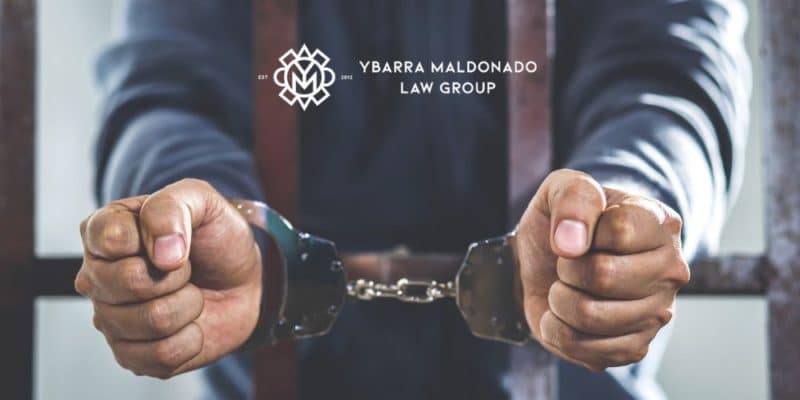
Your defense attorney can appeal a probable cause decision after a preliminary hearing. Your defense team must file the motion for a new preliminary hearing within 25 days of the original hearing. If the court grants the motion for a new hearing, the new hearing has to be held within 15 days. If a new hearing is not scheduled, the case will be dismissed. The motion has to prove that your rights were violated during the initial hearing or that the evidence was not sufficient or credible enough to support finding probable cause.
Can You Go to Jail at a Preliminary Hearing?
A probable cause finding after a preliminary hearing is not the same thing as a conviction. Depending on the details of your case, you may be held in jail pending trial after a probable cause finding. If you have posted bail or been released on your own recognizance, there’s no reason to believe that you’ll be put in prison following the preliminary hearing.
Grand Jury Indictment vs. Preliminary Hearing
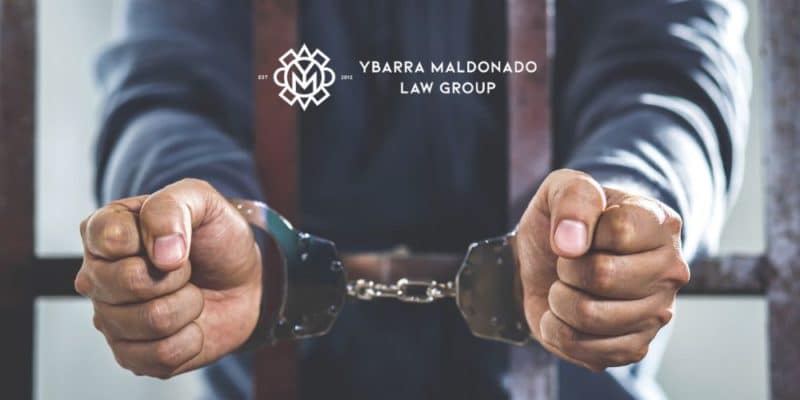
In some cases, the prosecution team may waive the preliminary hearing and instead choose to pursue an indictment from a grand jury. During a grand jury trial, the defendant and their criminal defense team are not allowed to be present. Prosecutors often try to go this route because the grand jury makes a decision based on the prosecution’s evidence alone. Any victim testimony and witness statements cannot be cross-examined because the defense cannot be present.
The ability to cross-examine witnesses can be a big advantage to the defense team. In both a preliminary hearing and a grand jury trial, the goal is to determine whether or not there is enough evidence to pursue criminal charges against the defendant. So, what does it mean to be indicted? If the grand jury finds probable cause, they will issue an indictment. If the grand jury does not find probable cause, the prosecution and the defense team will have to go through a preliminary hearing before a magistrate judge. Should the grand jury choose to indict, then the prosecution can proceed with a criminal trial.
Contact the Experienced Defense Attorneys at Ybarra Maldonado Law Group Today
A criminal trial can be a lonely, terrifying experience. For many people, the first time they meet their criminal defense team is at the preliminary hearing. A court-appointed attorney is often overloaded with cases and may not have time to explore all of your legal options. Establishing an attorney-client relationship with a criminal defense lawyer from our law firm can ensure that your case gets the care and attention it deserves.
The experienced criminal defense lawyers at Ybarra Maldonado Law Group can support you through every aspect of your case. For more information about our legal services, contact us today at (602) 910-4040. We look forward to fighting aggressively for your rights and your freedom.

